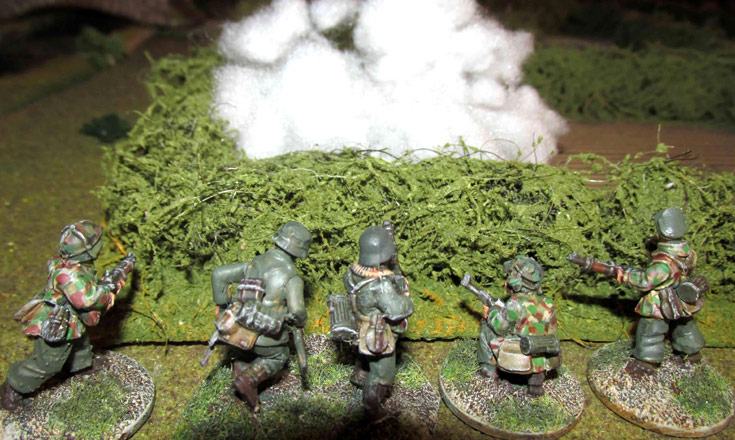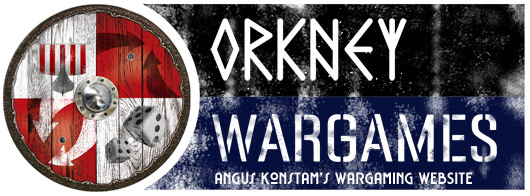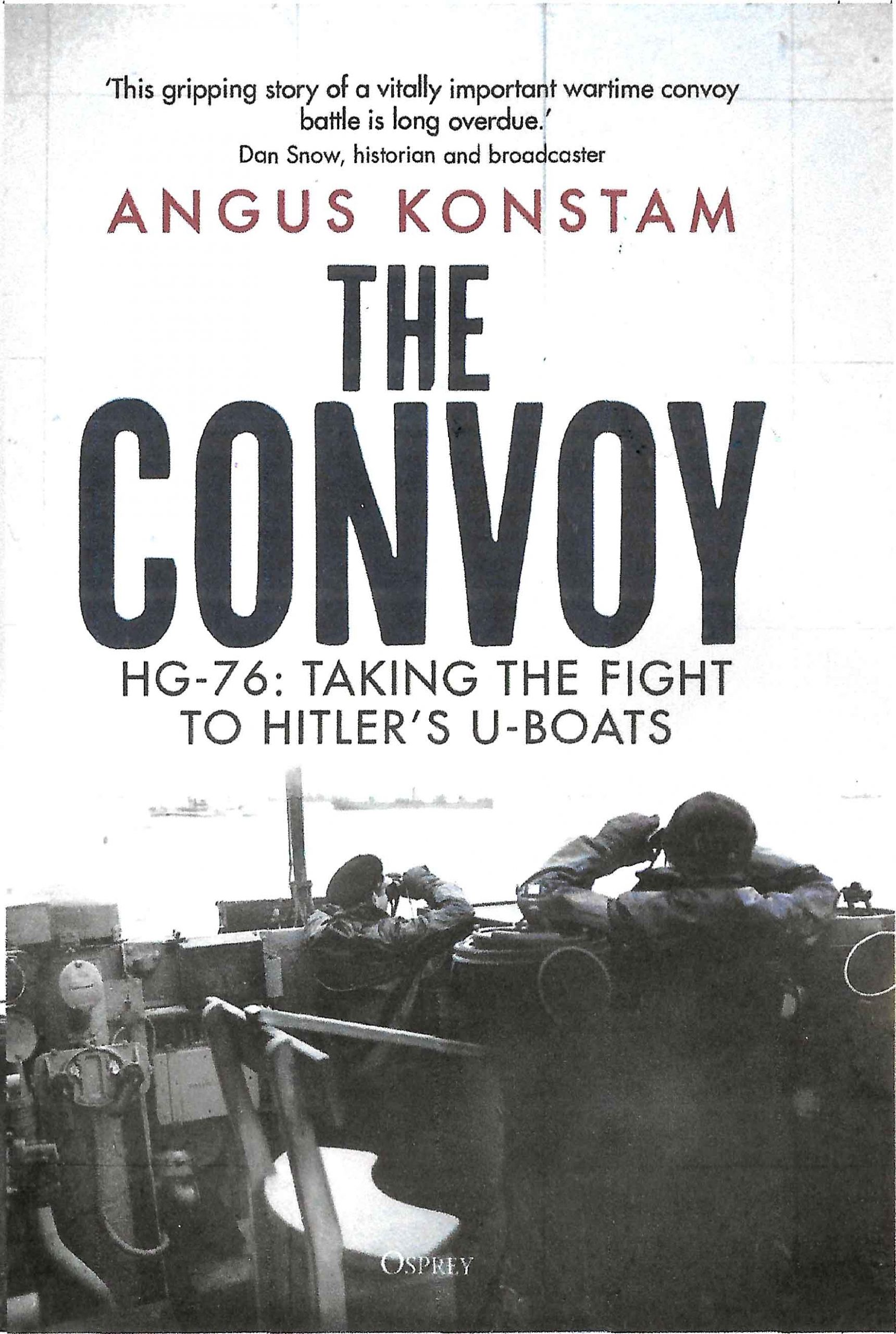
Hubertise Farm, 1944
11th April 2014, 0 Comments
The Second World War, Chain of Command, 28mm
The burgeoning little group of wargamers in Orkney was reduced to two this week, thanks to courses, interviews and work commitments. So, I ran a small Chain of Command game, to show newcomer Gyles what the rules were all about. The game was a straightforward platoon encounter, with both sides patrolling in the vicinity of Hubertise farm. The Germans had a Wehrmacht panzer grenadier platoon, while the British platoon was from a regular infantry division. To offset the Germans’ advantage in firepower (they have two LMGs per squad), the British got a Vickers MMG to beef up their force. the game begins with the “patrol phase”, as both players move their patrol markers forward until they’re “locked down”, by coming within 12″ of an enemy marker. Once one side is fully locked down you use these positions to determine your “jump off points”, where your troops come onto the table. This done, we began the game. Gyles had three squads, which he brought on fairly equally along the table edge (the picture above is from the German side of the table). He brought one on to the left of the road, one facing the farm, and the third in the little orchard on the right. My guys deployed in the cattle shed on the far side of the road, in the corn field facing the orchard, and in the field opposite the farm and the T junction. The problem with my setup became apparent when the concentrated fire of the Germans’ central squad ripped into the cowshed.
Gyles had three squads, which he brought on fairly equally along the table edge (the picture above is from the German side of the table). He brought one on to the left of the road, one facing the farm, and the third in the little orchard on the right. My guys deployed in the cattle shed on the far side of the road, in the corn field facing the orchard, and in the field opposite the farm and the T junction. The problem with my setup became apparent when the concentrated fire of the Germans’ central squad ripped into the cowshed. My Bren team was wiped out, and the rest of my guys kept out of site, well behind the bocage lining the road. Over on the German right the troops in the orchard came under fire from my Vickers, and suffered heavily. The Germans pulled back slightly, and after a fire exchange with my men in the cornfield the German squad broke and ran.
My Bren team was wiped out, and the rest of my guys kept out of site, well behind the bocage lining the road. Over on the German right the troops in the orchard came under fire from my Vickers, and suffered heavily. The Germans pulled back slightly, and after a fire exchange with my men in the cornfield the German squad broke and ran. A similar thing was happening in the centre. The British secret weapon was the 2-inch mortar. First it laid smoke to protect the guys in the vicinity of the cowshed. A firefight erupted on the German left, with both sides occupying a field on either side of the main road. The Germans only had part of their squad up, so the British outgunned them.
A similar thing was happening in the centre. The British secret weapon was the 2-inch mortar. First it laid smoke to protect the guys in the vicinity of the cowshed. A firefight erupted on the German left, with both sides occupying a field on either side of the main road. The Germans only had part of their squad up, so the British outgunned them. A morale check forced one German fire team back out of the field, and it remained there for the rest of the game, with smoke in front of it to prevent it from taking part in the action. This let the British blast away at the remaining German fire team, until it was destroyed.
A morale check forced one German fire team back out of the field, and it remained there for the rest of the game, with smoke in front of it to prevent it from taking part in the action. This let the British blast away at the remaining German fire team, until it was destroyed. That left one German squad in action – the one on the field with the pond in it, at the back of the farmhouse. They couldn’t do much harm, as their line of fire had been blocked by smoke. By the time that lifted my section in the cornfield had moved into the road, and was lining the bocage, firing at the Germans in the middle of the field opposite them. The inevitable result was they broke and ran, leaving the British in control of the field. Hurrah!
That left one German squad in action – the one on the field with the pond in it, at the back of the farmhouse. They couldn’t do much harm, as their line of fire had been blocked by smoke. By the time that lifted my section in the cornfield had moved into the road, and was lining the bocage, firing at the Germans in the middle of the field opposite them. The inevitable result was they broke and ran, leaving the British in control of the field. Hurrah! I should really have let Gyles win, this being his first CoC game an all. He’d been used to Bolt Action, and so it was interesting that he said he much preferred this system, as it gave a much better feel. The thing is, CoC is excellent at recreating platoon tactics, and is geared up for exactly that, while Bolt Action remains a more generic Warhammer-esque system. We’ll certainly play a game again soon, as two of the Orkney players are busy painting up troops for a rematch!
I should really have let Gyles win, this being his first CoC game an all. He’d been used to Bolt Action, and so it was interesting that he said he much preferred this system, as it gave a much better feel. The thing is, CoC is excellent at recreating platoon tactics, and is geared up for exactly that, while Bolt Action remains a more generic Warhammer-esque system. We’ll certainly play a game again soon, as two of the Orkney players are busy painting up troops for a rematch!

